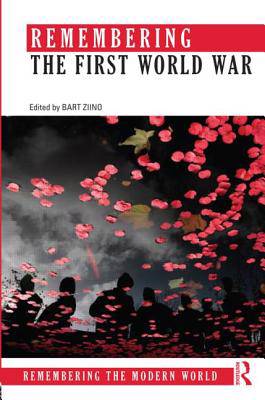
- Afhalen na 1 uur in een winkel met voorraad
- Gratis thuislevering in België vanaf € 30
- Ruim aanbod met 7 miljoen producten
- Afhalen na 1 uur in een winkel met voorraad
- Gratis thuislevering in België vanaf € 30
- Ruim aanbod met 7 miljoen producten
Remembering the First World War
Omschrijving
Remembering the First World War brings together a group of international scholars to understand how and why the past quarter of a century has witnessed such an extraordinary increase in global popular and academic interest in the First World War, both as an event and in the ways it is remembered.
The book discusses this phenomenon across three key areas. The first section looks at family history, genealogy and the First World War, seeking to understand the power of family history in shaping and reshaping remembrance of the War at the smallest levels, as well as popular media and the continuing role of the state and its agencies. The second part discusses practices of remembering and the more public forms of representation and negotiation through film, literature, museums, monuments and heritage sites, focusing on agency in representing and remembering war. The third section covers the return of the War and the increasing determination among individuals to acknowledge and participate in public rituals of remembrance with their own contemporary politics. What, for instance, does it mean to wear a poppy on armistice/remembrance day? How do symbols like this operate today? These chapters will investigate these aspects through a series of case studies.
Placing remembrance of the First World War in its longer historical and broader transnational context and including illustrations and an afterword by Professor David Reynolds, this is the ideal book for all those interested in the history of the Great War and its aftermath.
Specificaties
Betrokkenen
- Uitgeverij:
Inhoud
- Aantal bladzijden:
- 254
- Taal:
- Engels
- Reeks:
Eigenschappen
- Productcode (EAN):
- 9780415856324
- Verschijningsdatum:
- 19/12/2014
- Uitvoering:
- Paperback
- Formaat:
- Trade paperback (VS)
- Afmetingen:
- 155 mm x 234 mm
- Gewicht:
- 399 g

Alleen bij Standaard Boekhandel
Beoordelingen
We publiceren alleen reviews die voldoen aan de voorwaarden voor reviews. Bekijk onze voorwaarden voor reviews.










